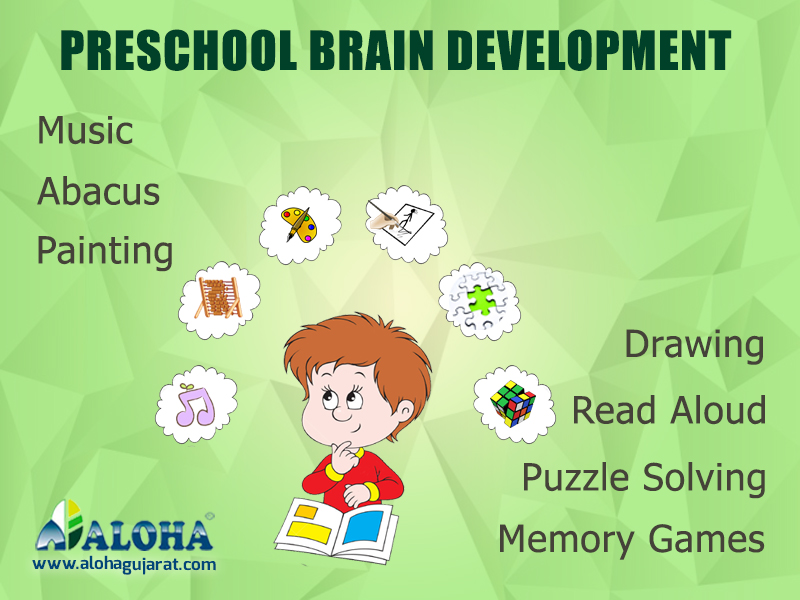"What guides the brain is more important than the brain itself"
When your child is in preschool they will for the first time begin to be introduced to the world of academic learning.
This is a very developmental and developing time in a child's life, when their brain is most plastic and where like a sponge they will be able to learn almost anything. So it's your job to use the opportunity to test your children at home as well to develop their brains and help them to excel at preschool and at primary school when they get there.
Following are some activities compiled which might actually help your child boost his brain-
- Making Things-
Get your children to make things using house hold objects and they will learn to manipulate objects. You can also use things like building blocks to make less mess and to create a range of different possibilities using a set procedure.
- Drawing-
Drawing develops a range of skills and will help them to learn to hold pencil correctly, to learn about perspective and more.
- Making Music-
Making music is great for children's awareness, sense of timing and more. Get the children to sing along with some music, or clap along, or create games so that they have to copy the timing and number of claps.
- Play with Sand-
Getting your children to play with sand promotes physical development. Large muscle skills develop as children dig, pour, scoop, and clean up spills with brush and dustpan. Eye-hand coordination and small muscle control improve as children learn to manipulate sand accessories.
- Read Aloud Picture Books-
Reading transports to a different world. When we read aloud to our kids they learn intonation, correct way of speaking and pronunciation. Imagination builds up magnificently in kids who read a lot. Reading children's picture books is a great way to encourage cognitive development. You can also try to engage them more by getting them to answer questions about the story as you go.
- Free hand Coloring or Painting-
Children develop the skill of patience and learn to focus on details when coloring. Such a sense of attainment is achieved when a coloring page is completed.
- Memory Games-
The game of turning over cards is a basic memory game that all children enjoy and that increases their memory and attention which is perfect for preschoolers.
- Whole Brain Development Through Abacus-
Starting with whole brain development activities like mental math through abacus classes can provide too many benefits to young minds. Improved visualization, photographic memory and better concentration skills are a few of them. ALOHA Gujarat provides with a very good program on abacus learning that starts at the age of 5.
- Puzzle Solving-
Games with rules help in improving social intelligence. And puzzles can help more energetic kids spend some quiet time on their own while still vitalizing their minds.
- Interactive Videos-
Yes, educational electronic games, videos, and certain educational TV programs might benefit your child, but with several modifiers. Parents should carefully choose high-quality programs and be with the child when he’s watching or playing. Your job is to guide and teach what’s being shown.
- Math Based Activities Like Sorting And Beading-
The process of application of logic in real life objects starts with activities like beading and sorting. Kids begin sorting in their own ways at an early age. All we need to do is give them more opportunities and encourage them with manipulative so that this leads to better brain development.
- A Nature Walk-
It is always good to take your kid out to a park for at least 2 hours every day. Physical activities would help him to become independent faster as well. Such activities help in boosting the brain cells as well as in the circulation of blood to the brain.
- Singing Songs Or Nursery Rhymes-
A preschooler can easily memorize short rhymes. You should also teach him to play a musical instrument which will help him develop his visual and coordinating skills.
- Storytelling-
It requires the listening kids to pay attention for long periods. While listening to a story, children use their memory to keep a track of the characters and what is happening, and relate that to new information as the story advances.
- Pretend Or Dramatic Play-
In dramatic plays, children hold their own role as well as the roles of others in mind which exercises their memory. They have to stay in character, which helps with disciplinary control. Lastly, whatever activities you choose, make sure it’s fun for your child. And above all, just let your kid enjoy the sheer pleasure of being a kid.


